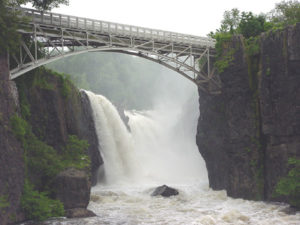we’re flying high on a wing and a prayer
I hope we know when we get there— Oysterband, ‘Wayfaring’
Now having been questioned by the Pharisees as to when the kingdom of God was coming, He answered them and said, “The kingdom of God is not coming with signs to be observed; nor will they say, ‘Look, here it is!’ or, ‘There it is!’ For behold, the kingdom of God is in your midst.”
— Luke 17:20-21
… or as the King James Version has it, “the kingdom of God is within you.” Its coming is unobservable, like the time you are living in. We cannot observe spacetime: we can only observe differences or changes in the current state of things. Can you direct your attention to the ground of your attention (and your intentions)?
In the Gospel of Thomas, the question was put to Jesus by his disciples:
His disciples said to him, “When will the kingdom come?”
“It will not come by watching for it. It will not be said, ‘Look, here it is,’ or ‘Look, there it is.’ Rather, the Father’s kingdom is spread out upon the earth, and people do not see it.”logion 113 (NHS)
At another time they asked him a very similar – or is it the same? – question:
His disciples said to him, “When will the rest for the dead take place, and when will the new world come?”
He said to them, “What you look for has come, but you do not know it.”Gospel of Thomas 52 (NHS)
In Greek/Coptic, the word for ‘rest’ here is anapausis. Some say this is a mistake for anastasis, which means ‘resurrection’ – another event connected to the coming of the Kingdom and the new world. But perhaps ‘rest’ is just the other side of the coin of ‘resurrection’ – both beneath our knowledge, like the water underground.
